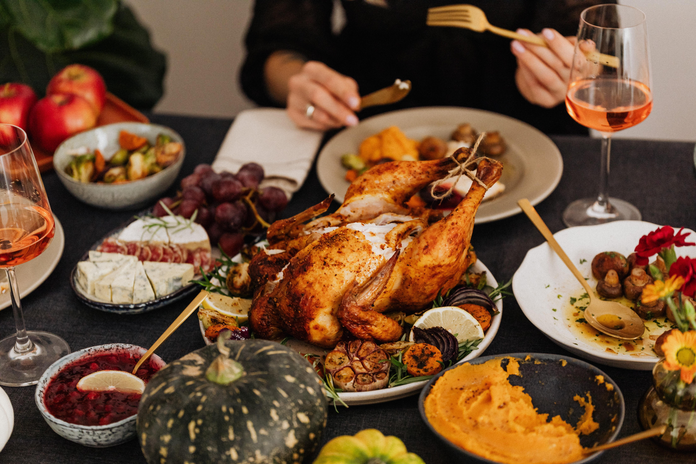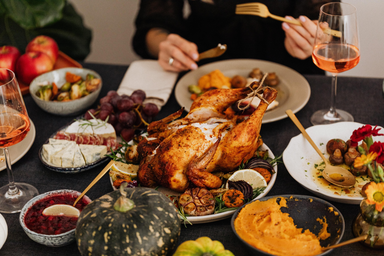Thanksgiving: the beginning of the passive aggressive family dinners in which you start to realize some of the things your grandparents say are just straight up offensive. Not only to your “fat aunt” [as grandma Pat puts it] but also to the impressionable five year old also sitting at the table that will soon learn that being “fat” is something that is shamed as a woman in society. As we begin to age we start to find out more about the people we have looked up to throughout our lives. When grandma comes to town and presents you with a twenty dollar bill, it was fun, innocent, not at all the hint to your cousins that you actually are the favorite grandchild. Poking jokes about being the favorite is fun until you realize she left one of her own sons out of the will. Not to mention the side stares that the new significant other of one of the grandchildren gets because they happen to not be white. Everyone sits through the slow obligated four to five hours in which backhanded compliments and jabs are sent flying throughout the kitchen, living room, and TV room. The only noise cutting through the awkward tension is Thanksgiving football that your slightly drunk uncle insisted on putting on, but your father pretends to watch instead of making conversation with his brother-in-law.
So, what to make of this incredibly uncomfortable family dynamic that everybody begrudgingly puts up with every. single. year? As much as we hate to admit it, we can learn something from these cold-wars that happen over the course of a three-course meal. Yes, we learn that our aunts might actually have extremely disordered eating habits when it comes to food, claiming that they will work off everything they eat next week. We also might learn that our grandparents might be a little more judgemental than we originally thought. Despite all of this, one of the most important things that we learn is how to navigate the awkward pauses in between slightly racist jokes, or change the subject when politics somehow gets brought up. The conversation may not always end with everyone being happy or someone’s feelings not being hurt, but honestly, that’s just life. And as we step into the world, in business, STEM, or genuinely any other professional field, we can look back at these dinners and use them as lessons on what not to say. As an opinion piece I’ll just end with this: being able to get through thanksgiving dinner should be something we can put on our LinkedIn.


